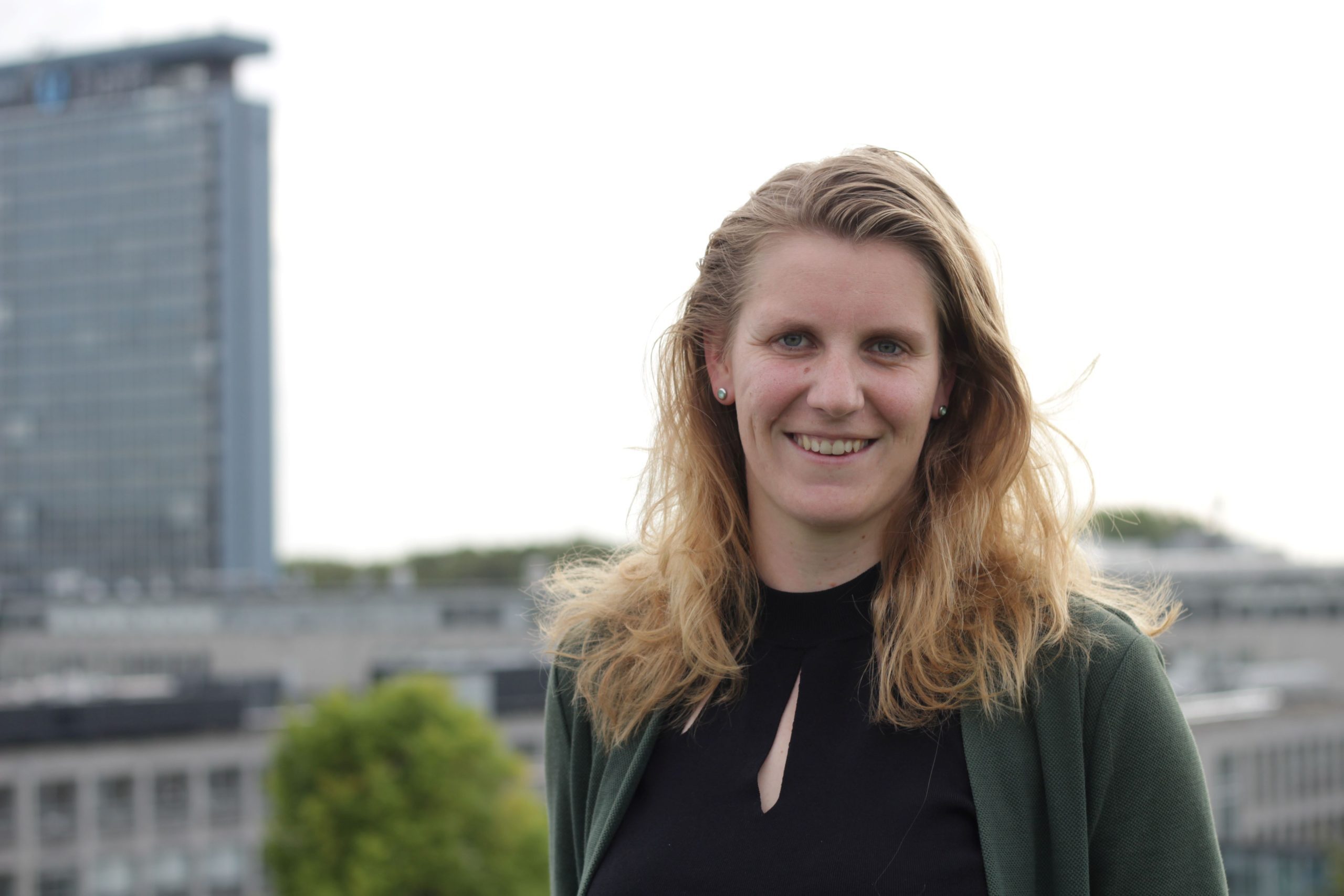The Works Council elections will be held on 3 and 4 October. For whom and which party can you vote? This time: Rebekka van der Grift of Young Researchers’ Impact.
Rebekka van der Grift of Young Researchers’ Impact. (Photo: Bas Koppe)
You’re this election’s newcomers. Why did you feel it was time for a young researchers’ party?
“It’s the first year ever that it is possible to only be in the Works Council for one-and-a-half years instead of three. That makes it possible for temporary contractors to be in it as well.
Currently, young researchers are not represented in the Works Council, while they make up about half of the total workforce of PhDs to assistant professors. One third are PhD candidates.”
Why do these young people’s voices need to be heard?
“If they feel heard, they are more likely to continue working in academia. It is not only about their current position, but also about their right to shape their own academic future.
Also, the younger TU Delft employees have more of a fresh look on things that diverge from the status quo. By including their viewpoints, we increase the diversity on the Work Council.”
What would be concrete measures that you would like TU Delft to take?
“For me, it is about the position of PhDs in the current workforce. Their mental well-being, their social safety, both of which are getting more pressing. We would like to set clearer expectations at the beginning of the PhD contract.
Also, supervisors and promotors should learn how to actually supervise and promote. We will also be rooting for more internal grant competition among young researchers under the supervision of seniors, which strengthens their position against other researchers internationally.”
On the election website you speak of wanting to ‘bridge the gap’, ‘encourage networking’ and being in favour of ‘sustainability and innovation’. What clear actions do you have in mind to achieve such things?
“We are a party of seven people, each with our own goals and ambitions. While, as a new party, it is very difficult to have a crystallized opinion on every issue, the most important thing is that we want to represent young researchers and make sure that their working environment and future are sustainable.”
On the Works Council, all members will have to work together to give joint advice to the Executive Board. How will you make sure that the other, more experienced, parties do not overshadow you?
“I am very sure that we will not be overlooked. Most employees at TU Delft are not sufficiently aware of the Works Council or show interest in it. We started a party. That already shows that we are a group of people that shows leadership and wants to change things. We are ready to have our voice heard.
Of course, we still need to learn how to work within the Council. But the other parties are willing to help us. They think it’s great to have some fresh blood among their ranks.”
How many of the 25 seats will it take for you to be satisfied?
“We are hoping for seven seats, since that would mean one for each member of our party. Each one of us has our own ambitions and plans, so we hope people will take that into account when they vote. I don’t think seven seats is an overshoot, since the group we want to represent is about half the employee population. Hopefully, the TU Delft community will give us a chance to make young researchers’ careers more sustainable.”
- This is the first episode of a series in which Delta talks to the chairmen of the four parties running for election about the work of the Works Council.
- Delta also spoke to Ronald Kuil, Winke Kloosterman en Maaike Swarte.
- Want to know more about the work of the Works Council? In the video below, the Works Council has briefly outlined its duties.



Comments are closed.